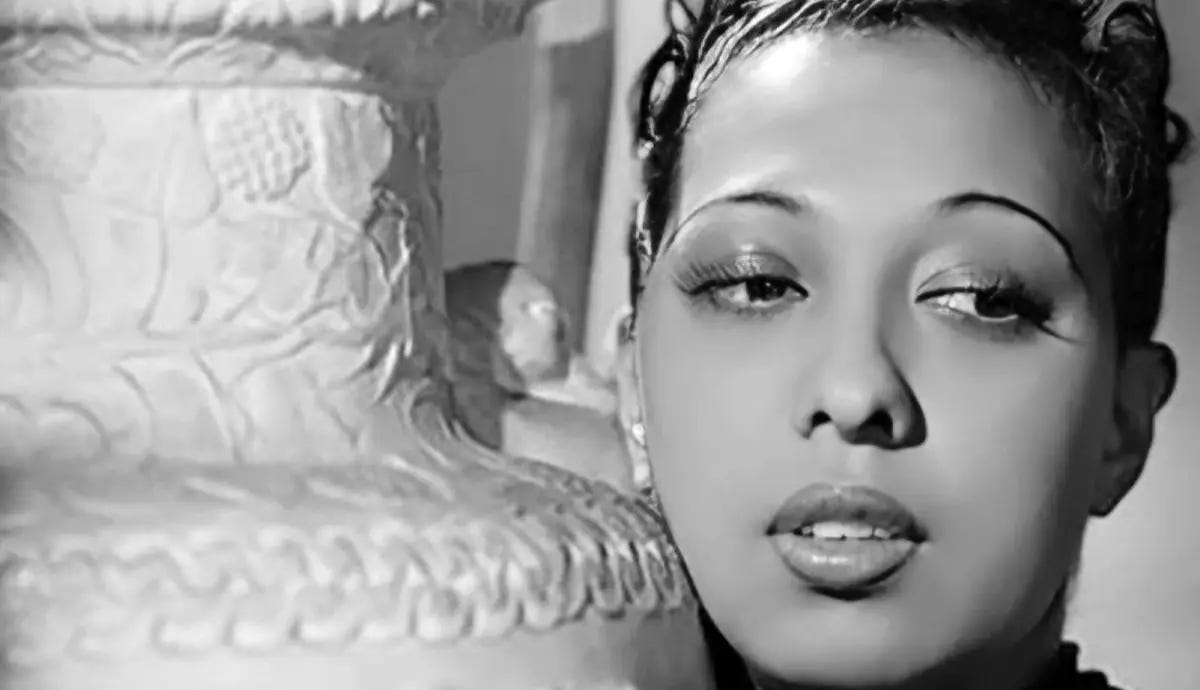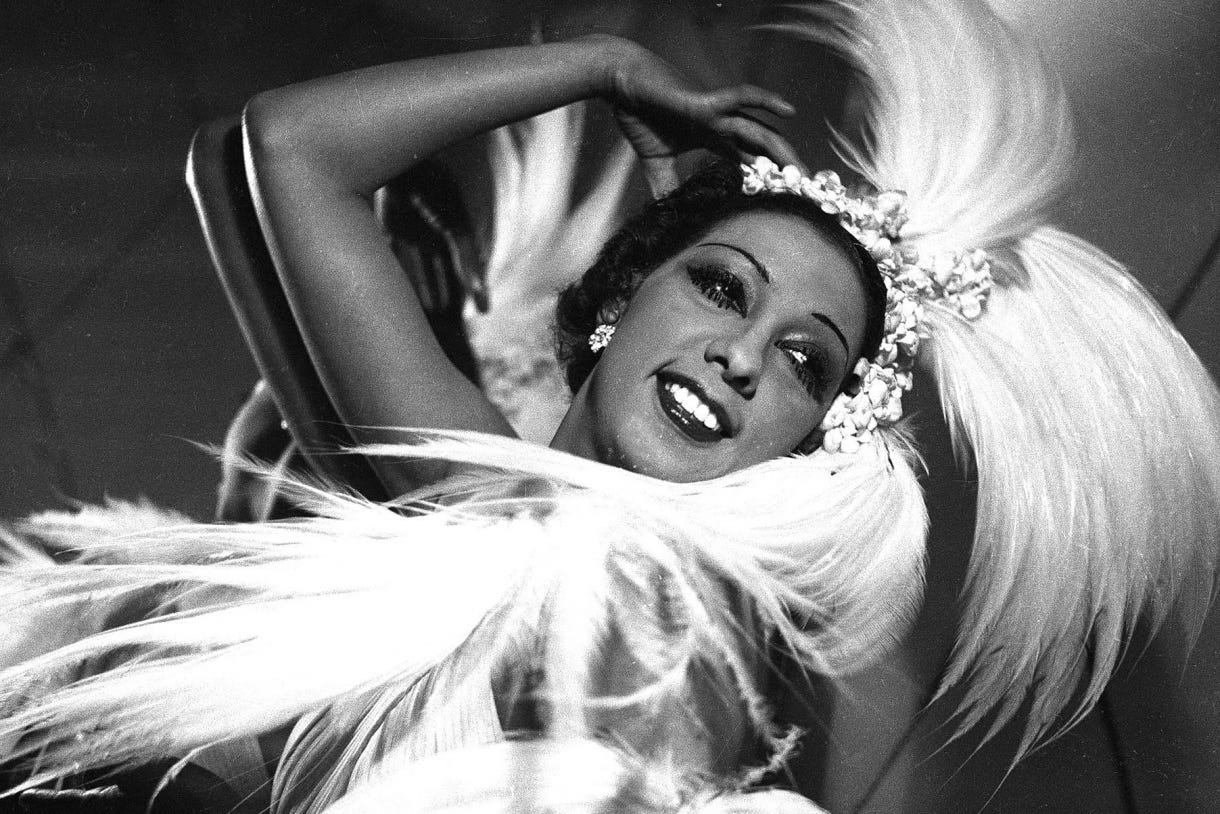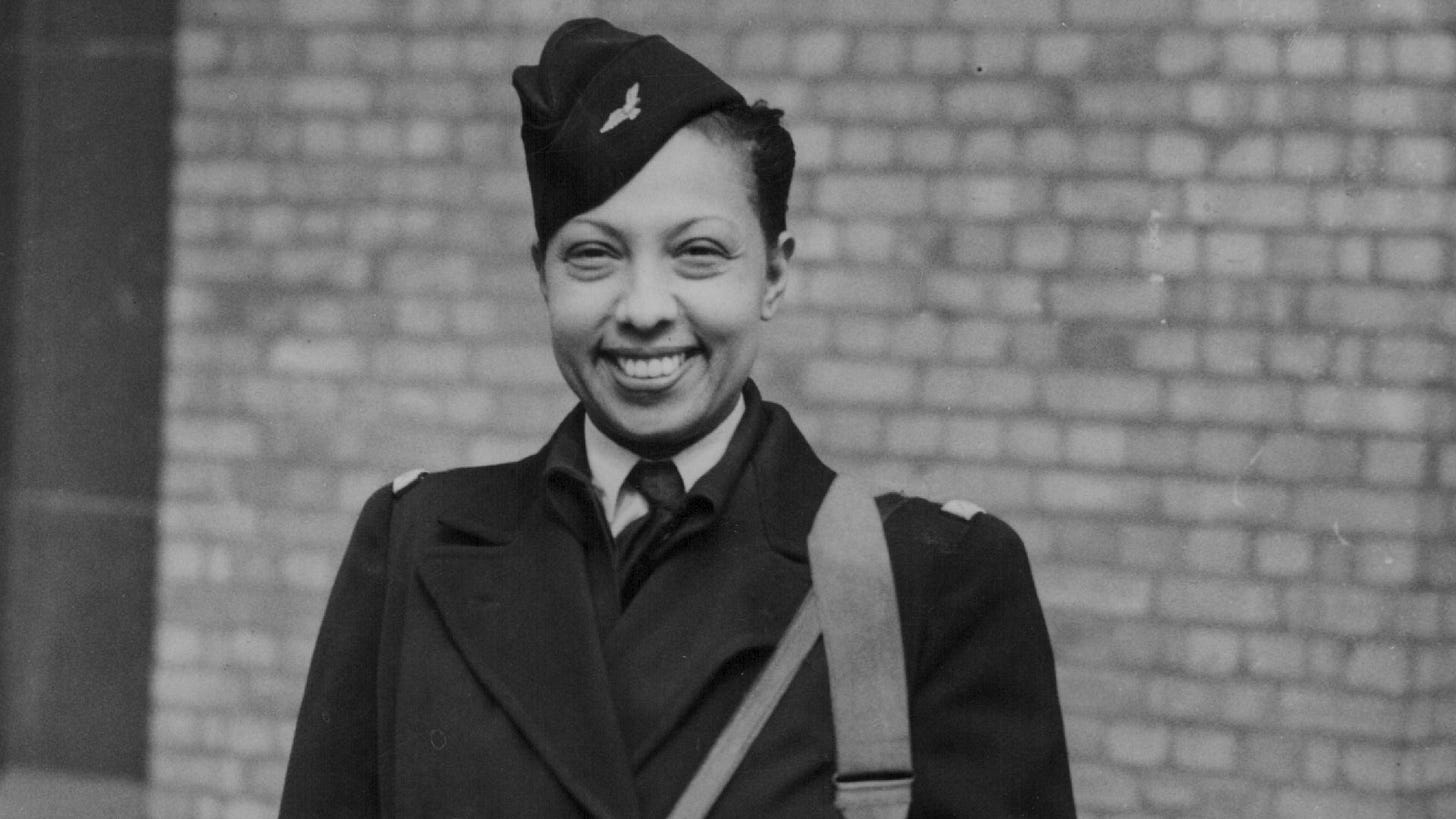Welcome back to the One Mic History Newsletter.
Imagine being a world-famous entertainer whose greatest performance wasn’t on stage, but undercover.
Josephine Baker didn't just imagine it she lived it.
Leveraging her fame and courage, Baker secretly spied for the French Resistance during WWII, turning her celebrity into a bold weapon against oppression.
Today, we unravel the story of Josephine Baker: The legendary performer who danced effortlessly between fame and espionage.
Born in poverty amidst segregated St. Louis in 1906, Josephine Baker faced a childhood steeped in hardship, racial discrimination, and seemingly impossible odds. Married by just thirteen years old, with scarcely any formal schooling, she appeared destined to remain on a difficult path.
At nineteen, she seized the chance of a lifetime, boarding a train bound for Paris, determined to leave behind the crushing grip of Jim Crow America. Josephine had no way of knowing this journey would forever reshape her destiny and help change history. Upon arriving in Paris, she immediately dazzled audiences with her electric charisma, magnetic performances, and iconic costumes most famously, a striking, feathered bikini. Thriving in the freedom and vibrant energy of Europe's entertainment capital, Josephine soon became one of the continent’s brightest stars and one of the wealthiest Black women of her generation.
But Josephine Baker's incredible story was only just beginning.
When war engulfed Europe in 1939 and Nazi forces invaded her beloved France, Josephine faced the greatest challenge of her life. Jacques Abtey, head of French military intelligence, quickly recognized the unique opportunity Baker’s fame offered. He approached her with a deeply dangerous, clandestine request, would she become a spy for France?
Josephine without hesitation she answered.
"France has given me all I have, and I am forever thankful. Therefore, I am prepared to give my life as an expression of my gratitude. Use me in any way you see fit."
And so began Josephine Baker's boldest performance yet, as a covert agent under the codename "Rose Bouclier," or "Shield Rose." Her celebrity opened exclusive doors to lavish parties, diplomatic events, and elite gatherings, all attended by powerful Axis leaders, who never imagined the charismatic entertainer could be collecting their secrets. Beneath glittering gowns and captivating smiles, Baker skillfully concealed precious intelligence writing sensitive notes directly on her arms, pinning secret messages under her costumes, and stashing espionage documents in trunks that border guards would never think to check.
When Nazi suspicion intensified during their occupation of France, Josephine turned her own luxurious country chateau into a dedicated hub of resistance activity, secretly sheltering agents and freedom fighters. Yet danger quickly tightened around her. Anticipating capture, Josephine and her handler, Jacques Abtey, devised a daring and ingenious escape plan to safely transport critical intelligence directly into the hands of Free French forces in London.
Disguising their mission as a glamorous performance tour through South America and neutral countries, Josephine braved numerous checkpoints and searches. Smuggling vital photographs, secret codes, and classified documents hidden in her sheet music and flamboyant costumes, she ingeniously collected even more enemy intelligence along the way, charming Axis diplomats who never guessed the glittering star was really a spy gathering evidence for Allied victory.
Nothing not even her health could stop Josephine Baker’s fierce determination. When acute peritonitis nearly took her life in 1941, Josephine defied doctors’ expectations by continuing to coordinate resistance efforts from her very hospital bed. Her resolve carried her through life-threatening illness and into yet another daring phase of her incredible journey.
Recovered and undaunted, Josephine actively traveled to Allied bases across North Africa and the Middle East, boldly performing for and inspiring troops mere steps from battlefields filled with hidden mines. She uplifted countless spirits, encouraging soldiers with her bravery, courage, and unstoppable spirit.
When France finally liberated Paris in 1944, Josephine Baker returned home to cheers and celebration, proudly dressed in her military uniform, no longer seen solely as an entertainer, but also recognized as a hero, a patriot, and a true force for freedom.
Years later, in 1961, France officially honored Josephine’s extraordinary bravery, awarding her two of the country’s highest distinctions: the respected Legion of Honor and the courageous Croix de Guerre. At this emotional ceremony,
Baker proudly, declared.
"I am proud to be French because this is the only place in the world where I can realize my dream."
Recently, Baker became the first Black woman in history inducted into France’s revered Pantheon, a monument dedicated solely to the nation’s greatest heroes and visionaries.
Her legacy lives on, from poverty and discrimination in America to international fame in Europe, from the dazzling lights of Parisian theaters to the shadows of clandestine resistance against the Nazis, her life serves as an unmatched testament to resilience, courage, and unyielding bravery.
Thank you for joining us today. For more engaging stories, visit One Mic History. Your continued support is greatly appreciated, we love you all.
-Countryboi






